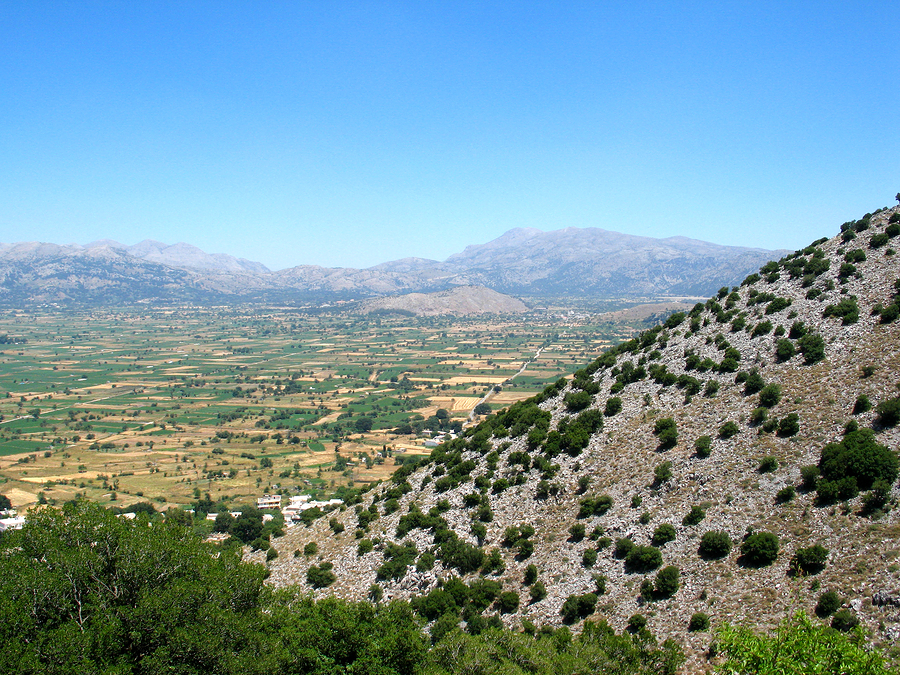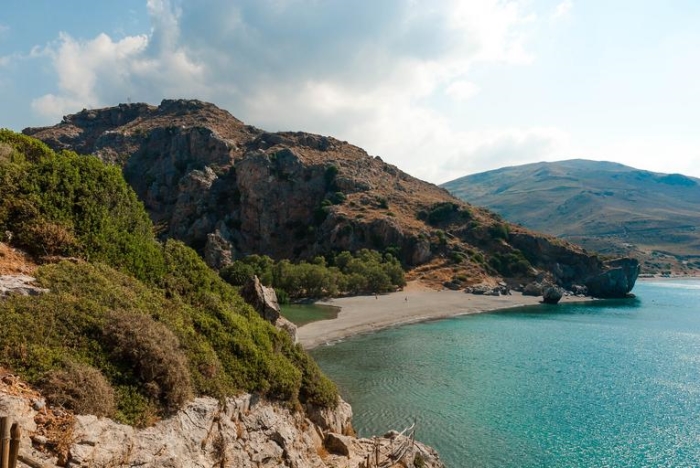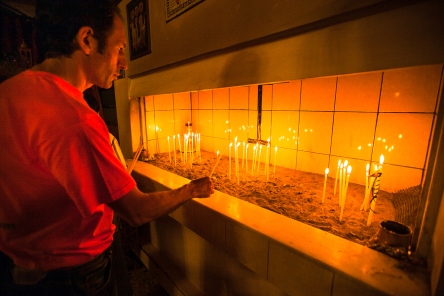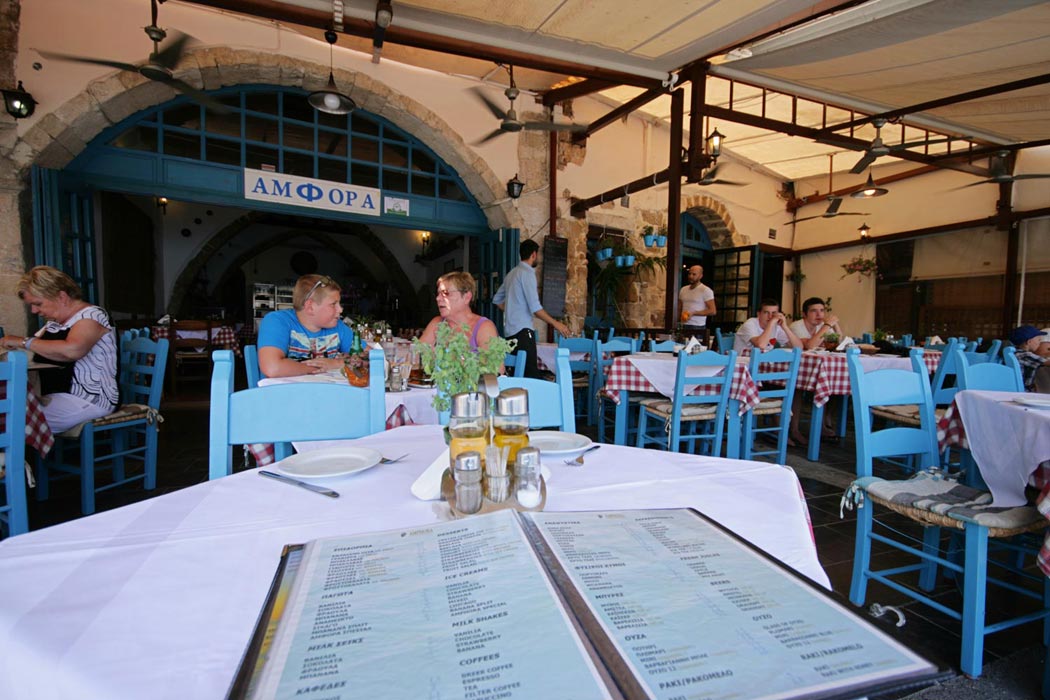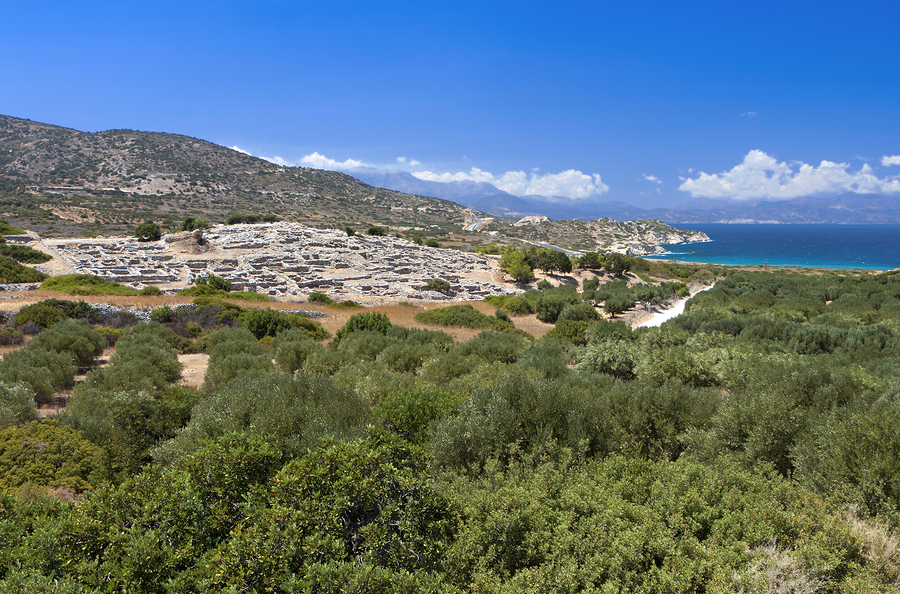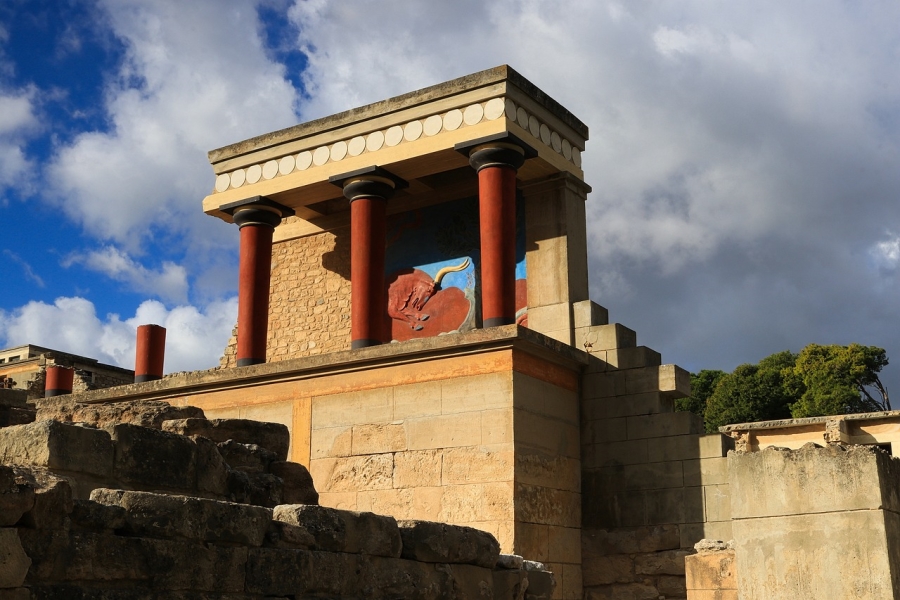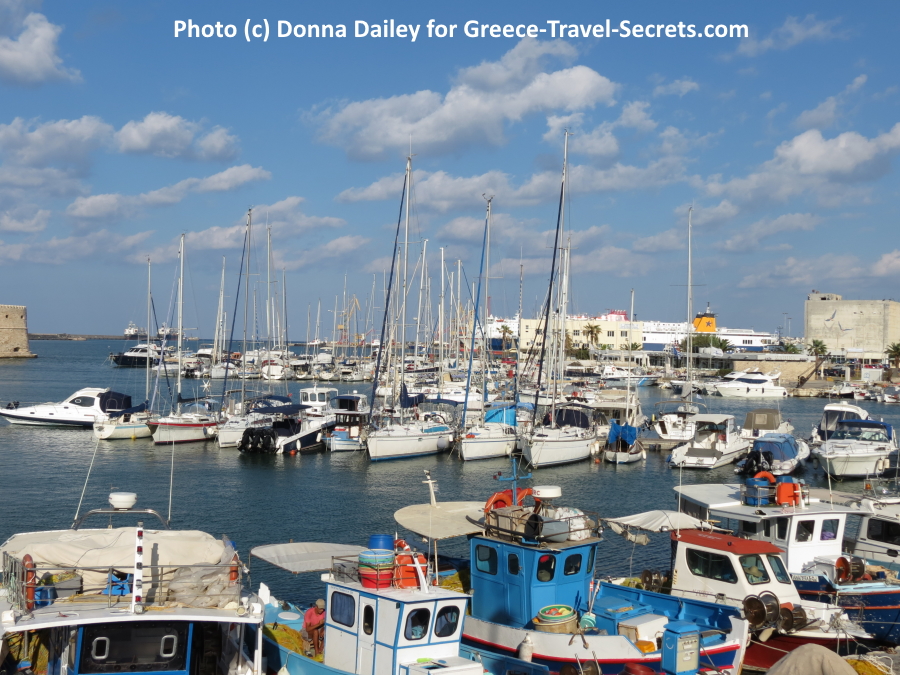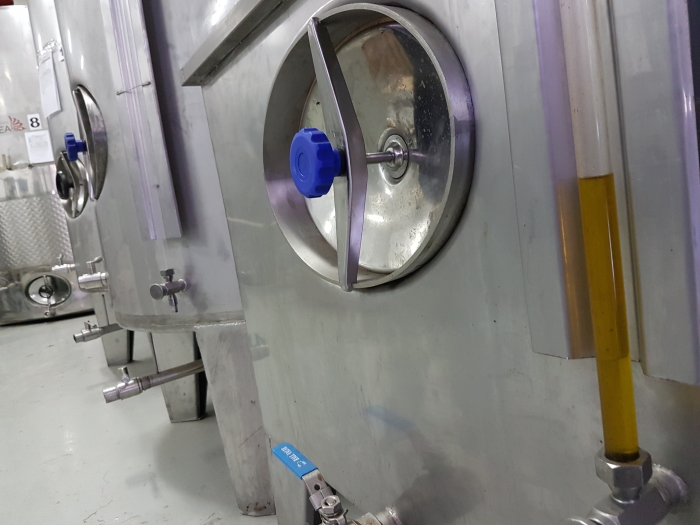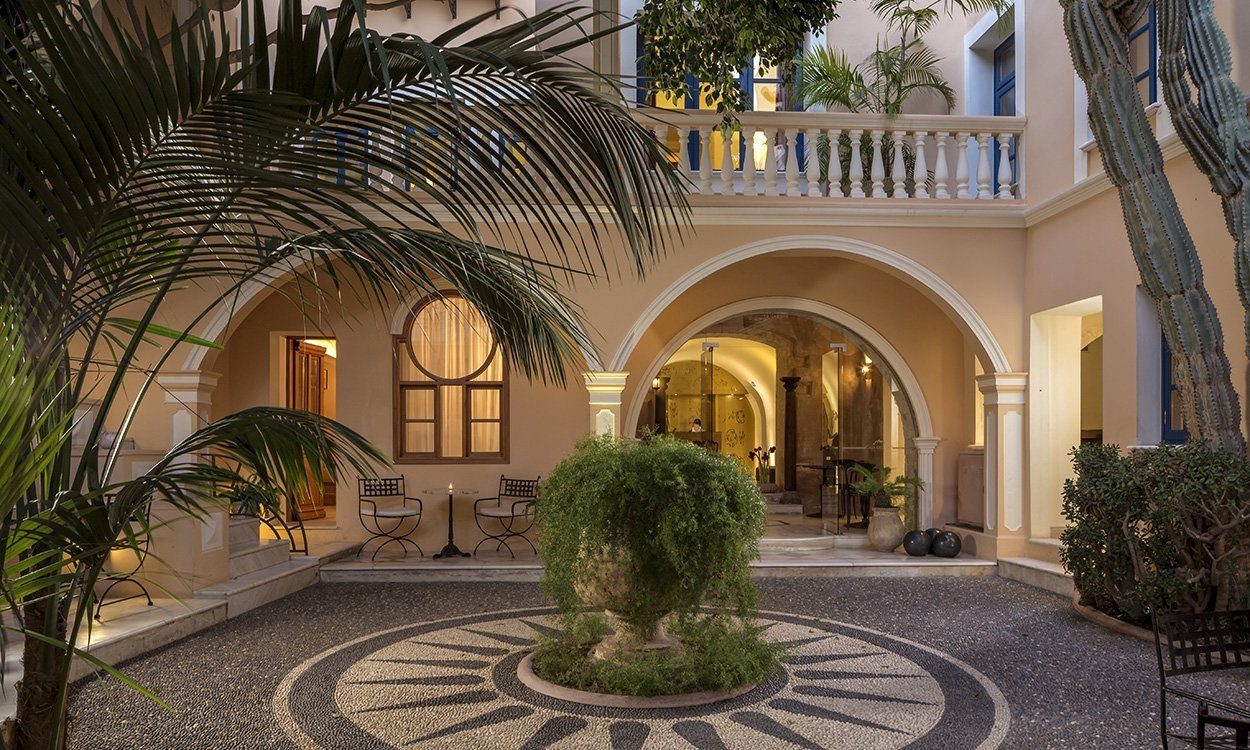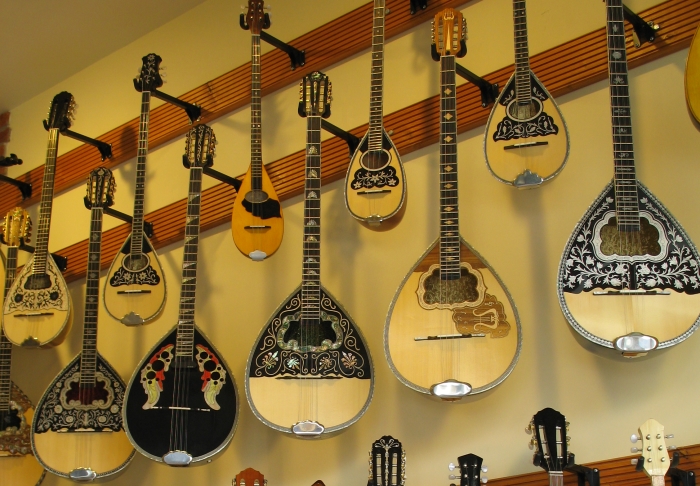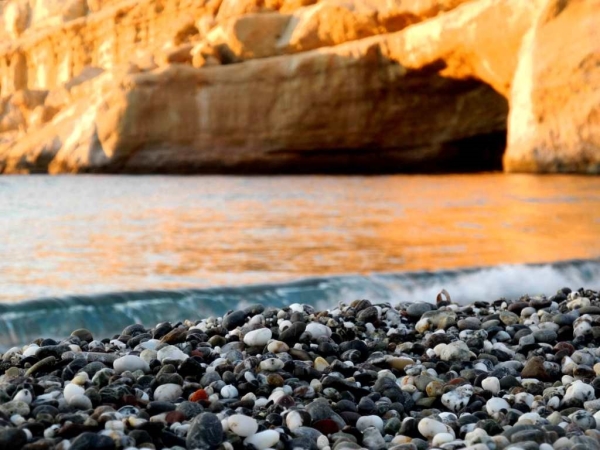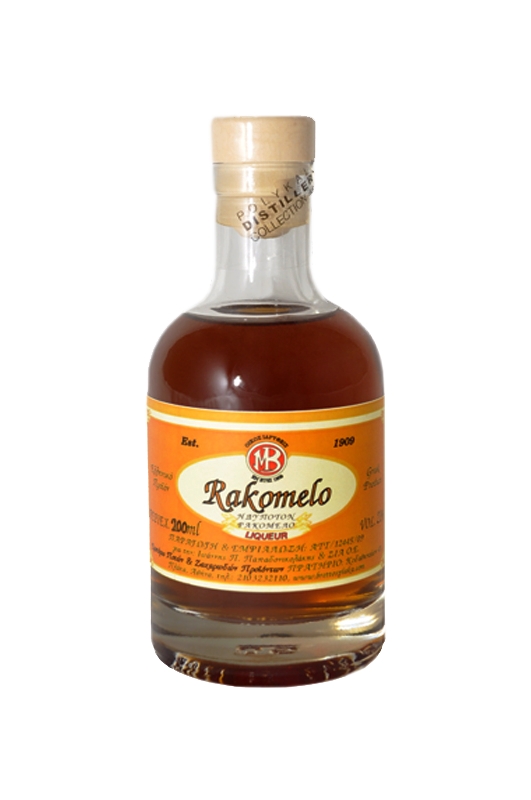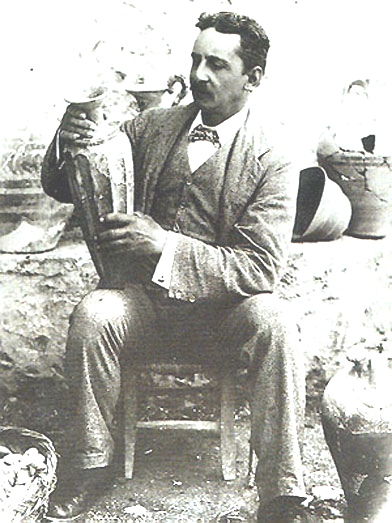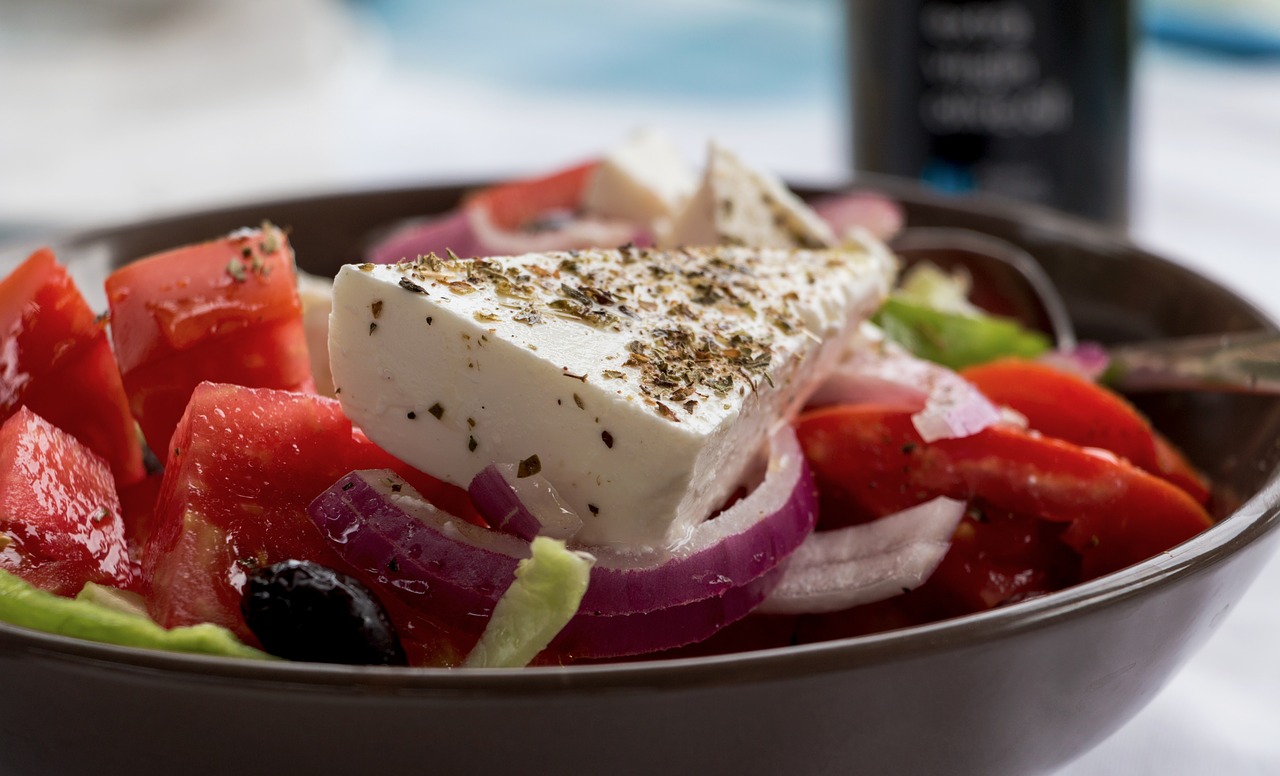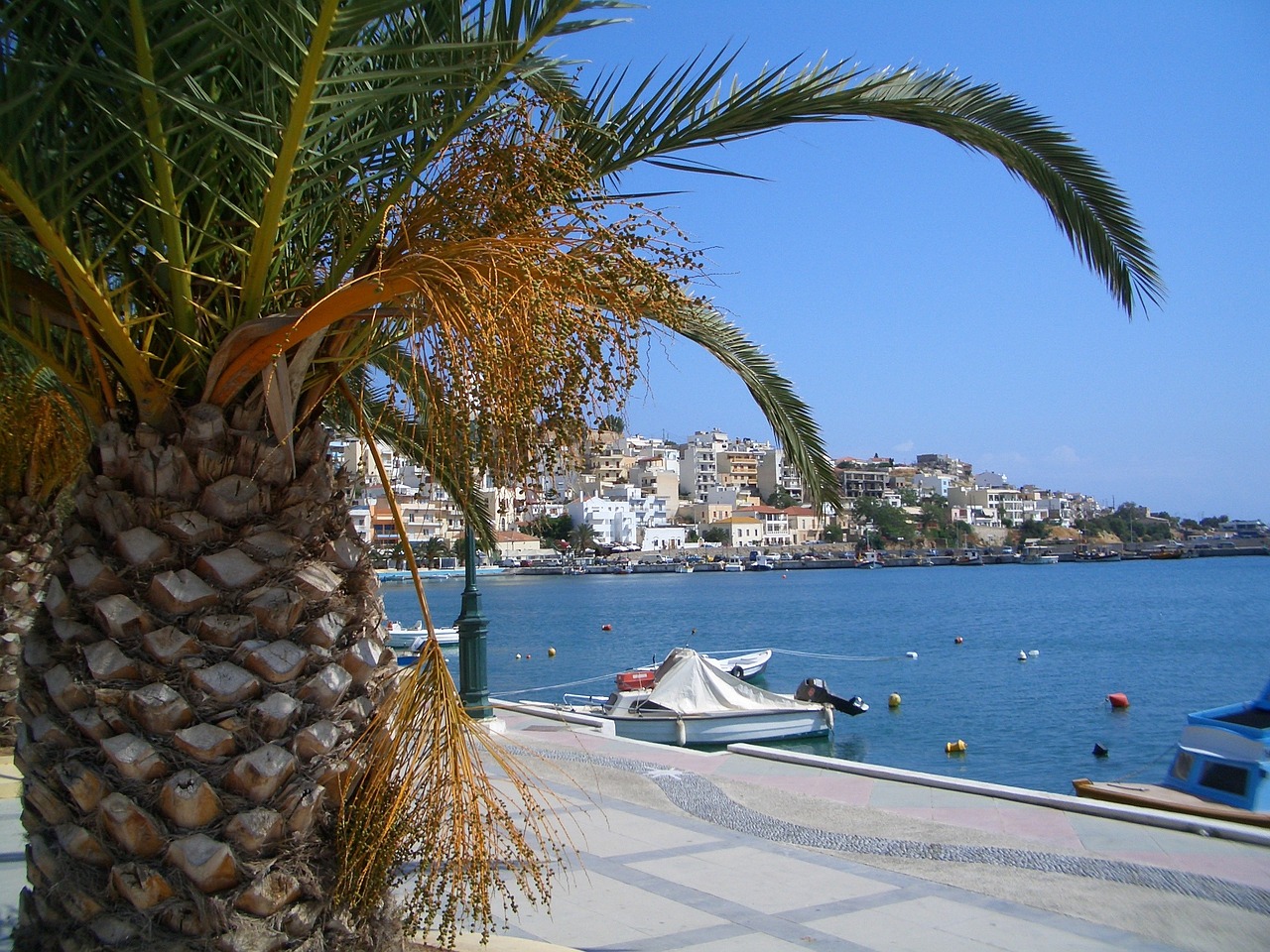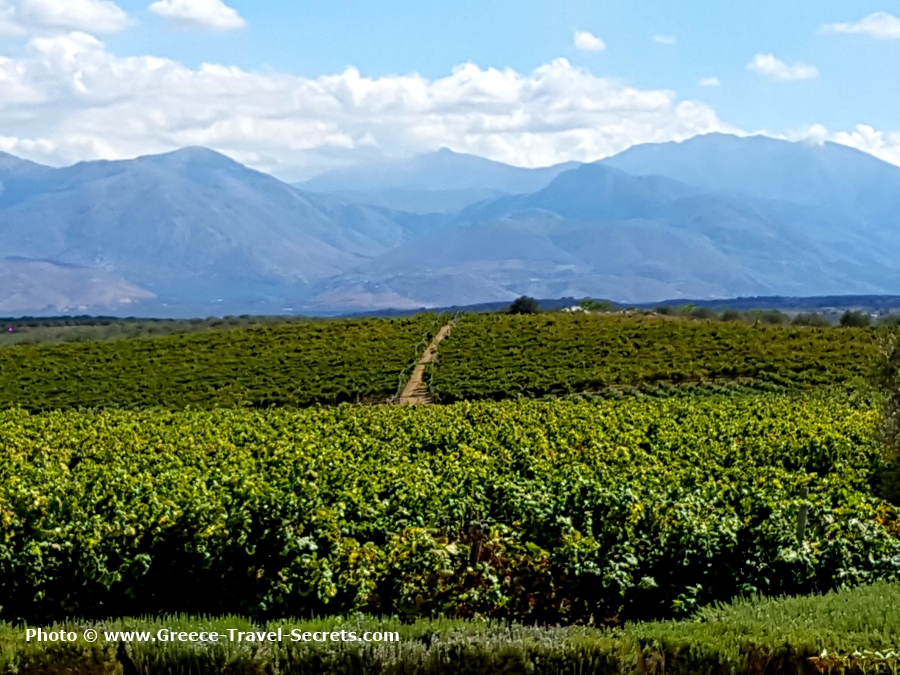Lasithi Plateau Drive
This Lasithi Plateau drive on Crete starts in Neapoli and ends in Malia, covering a distance of 80 km (50 miles) and taking two to three hours.
The Lasithi Plateau stands 850 meters (2,800ft) high in the Dhíkti mountains of eastern Crete, and is one of the most picturesque areas of the island. The floors and slopes of the plateau are filled with orchards and olive groves, all watered using countless windmills. Although the white-sailed mills are no longer present in their thousands, as they used to be, you will still see plenty of them, and much else besides.
 Map (c) Google Maps
Map (c) Google MapsStart in Neapoli
From the main square in Neápoli, follow the signs to the south for the ‘Plateau of Lassithi’ (sometimes spelt ‘Lasithi’). The route is well signposted almost all the way. The good tarmac road quickly winds up through olive groves.
Vrises
The road goes through the upper part of the village of Vríses (see our Olive Grove Walk), turning right, again signposted. Ahead of you are lovely views of the Selena Mountains. The road then descends, winding to irrigated olive groves, and up the other side of the little valley into a stark and rocky landscape.
Zenia
12km (7.5 miles) from Neápoli you pass through the hamlet of Káto Amigdáli, and soon after its big brother, Áno Amigdali. After this you reach the delightful village of Zenía, a cluster of vine-covered houses, beehives, fig trees, goats and chickens.
The First Windmill
The road winds higher now. Soon you will see your first beautiful large stone-based windmill on your right as you round a bend. There then follows a series of small villages, with women in traditional dress, donkeys with pack saddles, and villagers by the side of the road keen to sell you their honey, apples and raki.
The Lasithi Plateau
The road gets increasingly steep as it crosses over the mountains, beyond which is the Lasithi Plateau itself. A good panoramic view can be had from the Taverna Skaranis, where few people can resist pulling over. As you descend there is a good view of the plots and fields on the flat central plain, and more villages to pass through where there are tavernas, shops and petrol stations.
Áyios Konstandínos
After passing through Mésa Lasíthi you reach a t-junction. Turn left towards Áyios Geórgios. The first village after the t-junction is Áyios Konstandínos, where several shops sell weaving and textiles, and where windmills start to appear more regularly in the fields.
Cretan Folklore Museum
In Áyios Geórgios, drive up past the church and go to the left following the signs for the Diktean Cave and the Venizelos Museum. Look for a bend to the right where a sign points left to the Cretan Folklore Museum and the Venizelos Museum. Park on the main road and walk up, as there is not much space to park above. Both little museums are worth seeing, and look at the guidebook for the Folklore Museum to see an old photo showing hundreds of white-sailed windmills ranged across the plain.
Diktean Cave
Drive on out of the village and turn left at the sign for the Diktean (Dhiktaean) Cave. The road passes through more villages but take care when driving. Numerous tour buses use this route and the drivers are notoriously aggressive.
Just beyond the town of Psichró, a sign points left up the hill 2 km (1.2 miles) to the Diktean Cave. There are more good views of the Lasithi Plateau from the official car park.
Tzermiádo
Drive back down to Psichró and turn left, continuing the drive around the plateau. Orchards and farms are still plentiful, with olive groves and cows grazing on the plain.
A few kilometres beyond the village of Káto Metóchi, the road splits. Ignore the left turn to Iráklio for the moment but carry straight on to Tzermiádo, the largest town in the region. It’s a pleasant old provincial town with handicrafts for sale and several restaurants.
The Seli Ambelou Pass
After a break you should return the way you came in, this time taking the road towards Iráklio. There follows one of the best parts of the drive, through the Seli Ambelou Pass. Windmills can be seen along the ridge, to which you can walk if you want close-up views.
Krassi
About 2 km (1.2 miles) beyond the pass on the right of the road is the hideous-looking Homo Sapiens Museum, marring the otherwise magnificent views of mountains and valley. The road curves down the mountain, an exhilarating drive through trees and olive groves, but watch for the sharp right turn to Krássi. Look for the wonderful gnarled old plane tree in the village, and the nearby spring where locals fill their water bottles.
Taking a Break
This is a popular route and almost all the villages you pass through have tavernas and cafés. In Tzermiádo the traditional taverna Kri Kri has good local food. The Platanos taverna, set beneath the giant plane tree at Krássi, is an atmospheric spot.
On to Malia
Carry on through the village and rejoin the main road, simply following signs now for Mália. The road curves back up over rocky hills, then switchbacks steeply back down again, a pretty and majestic drive through a dry rocky landscape.
This road brings you into Mália a back way. Turn right at the stop sign towards Áyios Nikólaos, and this takes you to the entrance to Mália Palace archaeological site), a lovely place to end an impressive drive.
To download a PDF of this drive to print out and take with you, click here:
Latest Posts
-
Explore Vikos Gorge: Hiking, Rafting, and Food in Zagori
One of the most impressive canyons in Europe and one of Greece’s favorite mountain destinations, Vikos Gorge invites hikers and food lovers alike. -
Lefkada: The First Ancient Theater of the Ionian Islands Comes to Light
The first ancient theater ever discovered in the Ionian Islands is located in the heart of the ancient city of Lefkada, established before the end of the 7th century BC. -
5 Epic Island Hikes in Greece for Spring Explorers
This spring, five majestic peaks across Greece’s islands invite us to lace up our boots and discover a wilder side of island life. -
Greek Ferry Services to Halt on May 1 Due to Labor Strike
Ferries in Greece will remain docked for 24 hours on Thursday, May 1, as the Pan-Hellenic Seamen’s Federation (PNO) joins Labor Day mobilizations announced by the General Confederation of Greek Labor… -
Sifnos: Greece’s Hidden Culinary Star on the Rise
Sifnos, a Cycladic island, is gaining fame for its rich culinary heritage, especially the beloved melopita honey-cheese tart. -
Easter in the Mystical Castle of Monemvasia
In the castle town of Monemvasia, with its dramatic medieval backdrop and sea views, Easter is a deeply spiritual and atmospheric experience. -
Easter in Leonidio: A Tapestry of Light, Culture and Cliffs
In Leonidio, Easter comes alive with handmade hot air balloons in the sky and lanterns made from bitter oranges in the streets. -
The Lesser-Known Traditions of Greek Easter
Step off the beaten path this spring and discover the enchanting — and often surprising — Easter traditions found across Greece. -
April 9 Strike in Greece to Impact Public Transport, Ferries and Air Travel
Transportation and travel across Greece will face disruptions on Wednesday, April 9, as public transport, ferry and aviation workers join a nationwide strike called by Greek labor unions. -
Ancient Theater of Lefkada Brought Fully to Light Following Systematic Excavation
The Greek Culture Ministry has announced that the first ancient theater ever identified in the Ionian Islands has recently been brought fully to light on Lefkada, revealing an impressive monument that…
